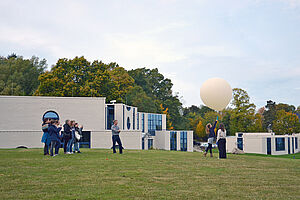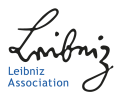Flying high: Schoolgirls experience science up close

Research has a gender equality problem. Men still dominate professions in mathematics, IT, natural sciences and technology - MINT for short. To change this, the Berlin-based MINT EC association and the University of Frankfurt am Main want to familiarize interested girls with scientific work. To this end, nine schoolgirls from all over Germany have now traveled to the Leibniz Institute for Atmospheric Physics (IAP) in Kühlungsborn to try their hand as researchers for two days.
The girls, aged between 16 and 18, explored the institute on the Baltic Sea and gained an insight into everyday work in atmospheric research. Physicists talked about their path to science and familiarized the schoolgirls with the institute's state-of-the-art techniques.
"Physics is so fascinating because we find it in all areas of life," says Lara, who attends 12th grade at a school in Rheinland-Pfalz. After graduating, she wants to study physics. "We can explain an incredible amount with it and yet there are still so many unanswered questions. Very interesting."
In Kühlungsborn, the schoolgirls also had a chance to get hands-on: Using balloons with a diameter of two meters, they sent out weather probes that measured temperature, wind and humidity up to an altitude of 38 kilometers. The data was sent to the institute by radio and analyzed by the girls. "At the IAP, we use ground-based measuring instruments such as radars or lidars to explore the middle atmosphere," says Dr. Michael Gerding, who works in the Optical Sounding department and is supervising the project. "The balloons that the schoolgirls sent out provide us with complementary data for this."
The schoolgirls' trip to Mecklenburg-Vorpommern is part of the MS-GWaves research project, in which the IAP is participating. The aim of the project is to gain a better understanding of the internal gravity waves in the atmosphere in order to make forecasts for weather predictions and climate change more reliable.
The institute in Kühlungsborn has around 70 employees in research, technology and administration. About 20 of them are female. To ensure that this proportion increases in the future, there is a committee for equal opportunities that has initiated various measures in recent years, such as family-friendly home office arrangements or flexitime. Since 2014, the institute has carried the nationwide "berufundfamilie" quality seal. "We are happy to see more women in research," says Prof. Dr. Claudia Stolle, who is director of the IAP since last year. And who knows - maybe there will be a reunion with a young Rhinelander woman someday.












